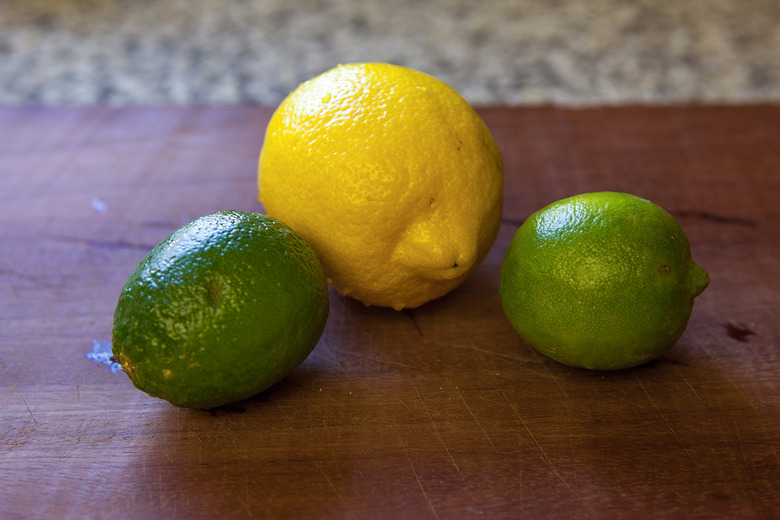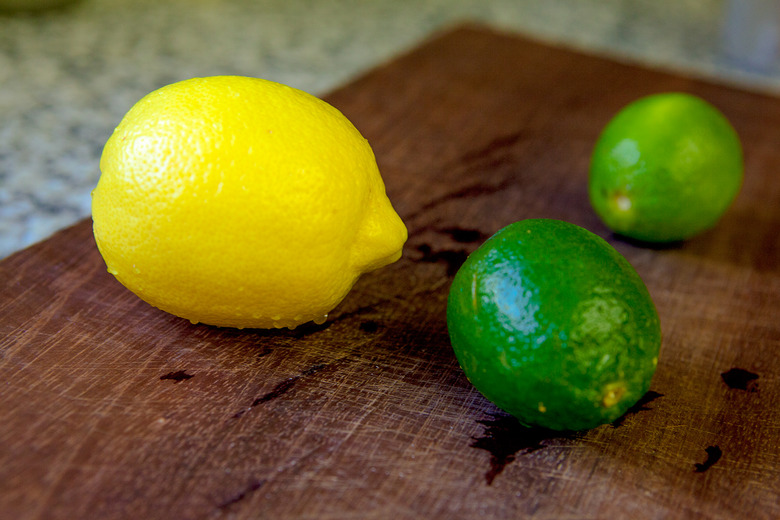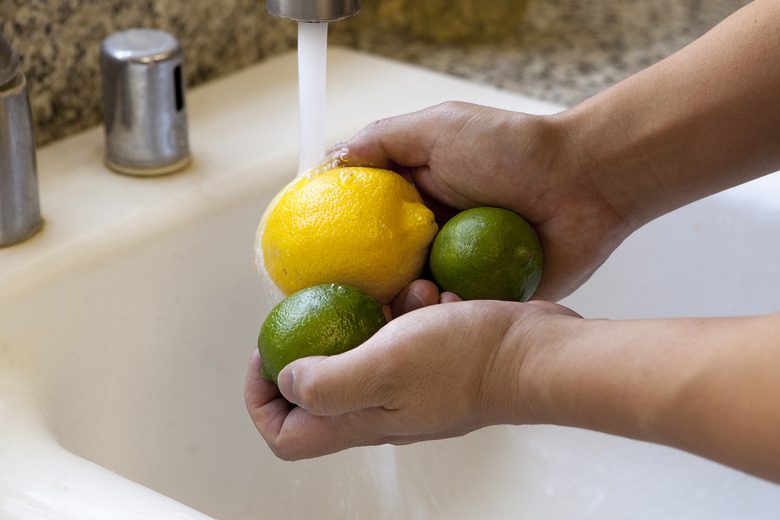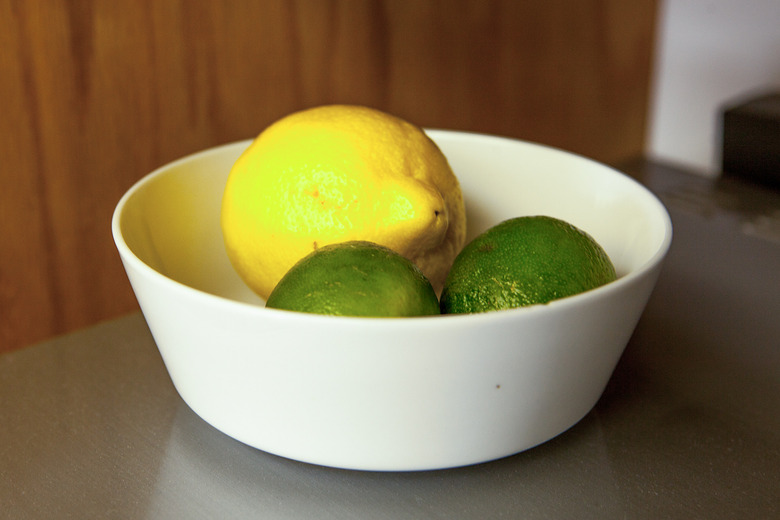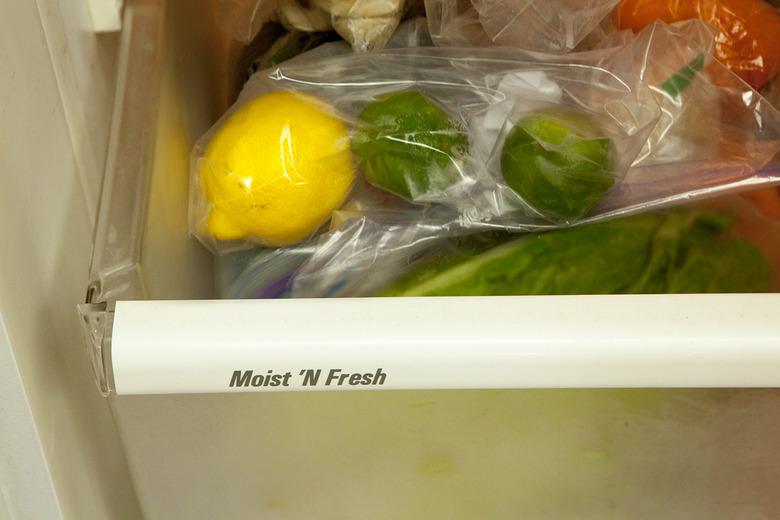How To Store Lemons & Limes
Things Needed
- Water
- Bleach
Lemons were originally cultivated in China and limes in India, although most people don't think of them as Asian fruits. Like many other fruits that don't grow in colder climes, lemons and limes often have high price tags, making them an expensive kitchen commodity. To get the best value for your produce-store investment and enjoy the citrusy tang of lemons and limes in drinks or cooking, learn how to store them.
Step 1
Buy high-quality fresh lemons and limes, which will last longer. Choose lemons with a firm texture and bright yellow skin. Discard any that look shriveled, feel soft and spongy or have mold spots. Look for limes with a glossy finish. Skins can range from light- to deep-green in color. Large spots on the skin reveal the lime has gone bad, but small spots do not necessarily affect the taste of the fruit. Select limes that feel firm but not hard. Quality lemons and limes feel heavy in relation to their size and have finely textured peels.
- Lemons were originally cultivated in China and limes in India, although most people don't think of them as Asian fruits.
- Quality lemons and limes feel heavy in relation to their size and have finely textured peels.
Step 2
Wash the fruit after bringing it home using a drop of bleach with water. Rinse well. Unless you live near lemon and lime groves, the fruit has already traveled some distance to reach your local store. Most fruit has been exposed to mold spores during transport, even if none appear on the fruit. You also want the fruits to be free of germs acquired during handling. After washing, dry the fruit thoroughly, as moisture leaves it vulnerable to rot.
Step 3
Store limes and lemons at room temperature if you plan to use them quickly. Keep the fruit dry and out of direct sunlight.
- Wash the fruit after bringing it home using a drop of bleach with water.
- Most fruit has been exposed to mold spores during transport, even if none appear on the fruit.
Step 4
If you do not use the fruit within one week, refrigerate it to preserve its freshness. In the crisper drawer of your fridge, the citrus fruits should last up a month. Wrap the fruit in a loosely sealed plastic bag, and rotate its position in the drawer to keep air circulating around it.
Tip
If you use just part of a lemon or lime, squeeze the rest of the juice into a an ice-cube trap, wrap the tray with a plastic bag to avoid odor contamination, and freeze it. Zest from the fruits can also be stored in plastic bags in the freezer.
